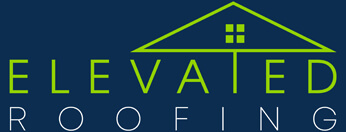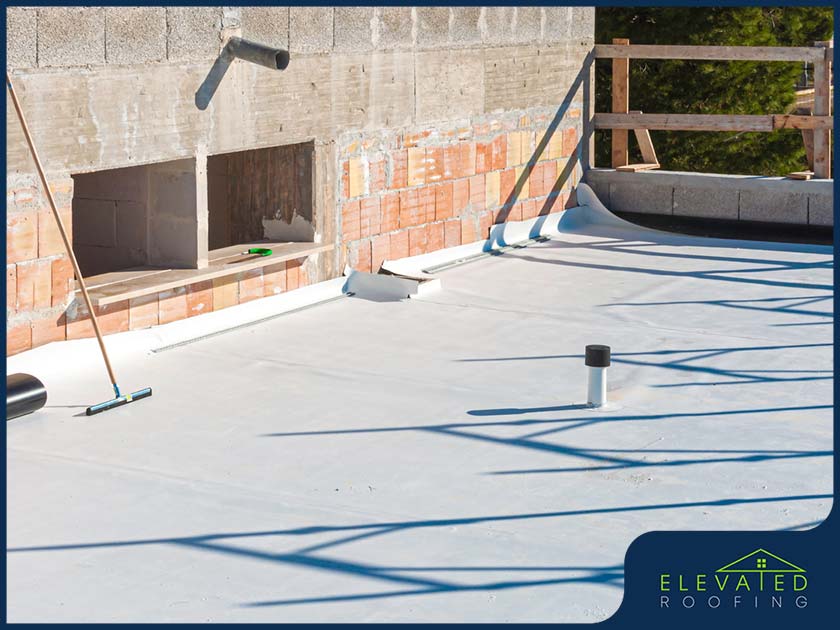Thanks to their low slope, commercial roofs are more leak-prone than sloped residential roofs. That’s why it’s important to choose a roofing material that can repel water and withstand natural wear and tear. If you need a new commercial roof, PVC roofing is a cost-effective choice.
Elevated Roofing LLC, your trusted commercial roofing repair services company, elaborates on the advantages of PVC roofing below:
High Reflectivity
To lower the risk of damage caused by ultraviolet rays, we recommend choosing a light-colored roof that can reflect UV rays and heat. Remember: the lighter a shade is, the more heat it reflects.
PVC roofing comes in a wide range of light colors, so they’re less vulnerable to UV-induced premature aging. And as an added benefit, light-colored PVC roofing also reflects heat, helping lower cooling costs.
Waterproof Seams
The seams—the point where roofing panels meet—are considered your roof’s weak point. To prevent water from infiltrating your roof’s underlayers, the seams are sealed using tapes, adhesives and seams. However, over time, the adhesives will weaken, creating gaps through which water can enter the building. This is less of a concern for PVC commercial roofs because their seams are welded together with heat, creating a watertight bond that’s just as durable as the membrane itself.
Resistance to Strong Winds
Thanks to their welded seams, PVC roofing membranes are also resistant to strong winds. Some PVC roofing systems managed to weather a Category 3 storm while remaining mostly intact.
Important note: As a rule, you should have one of your local commercial and residential roofing companies inspect your exterior after a storm or extreme weather event. That’s because no matter how durable your roof is, it’s likely to have sustained some form of damage during the storm.
What if there aren’t any leaks? It would still be a good idea to schedule a roof inspection. After all, it takes time for the warning signs of storm damage to appear. And by the time they do emerge, it’s already too late to mitigate storm damage.
Resistance to Fires
PVC roofing membranes are also highly resistant to fires, making it an excellent choice for homes in areas prone to wildfires.
Exceptional Durability
Excess weight load shouldn’t be too much of a problem for PVC commercial roof membranes. That’s because they have a load-bearing capacity of 350 pounds per inch, which is well above the standard of 200 pounds per inch set by The American Society of Testing and Materials.
Important note: While PVC roofing membranes have a higher tolerance for excess weight loads, they still have the same maintenance needs as other commercial roofing materials. In general, commercial roofs should be inspected by a commercial roofing repair services company at least twice a year.
Without routine maintenance, leaves and other debris might prevent water from reaching the drains, causing water to pond on the roof’s surface. As a rule, ponding water shouldn’t be left unattended on a PVC roof for more than two days. Otherwise, stagnant water will slowly seep into your roof, causing leaks. Not to mention the added weight load from standing water can damage your roof, regardless of how durable it is.
Lightweight Roofing Material
The main problem with durable roofing materials is that they’re heavy. This means the structure of your building might have to be reinforced to make sure there’s enough support for your roof.
PVC roofs are a notable exception, however. Despite being just as durable as some of the more popular commercial roofing options, it weighs significantly less. (On average, PVC roofing membranes weigh 0.25 pounds per square foot.)
Low Environmental Impact
Trying to go green? PVC roofing would be a great choice. PVC roofing is 100% recyclable, so discarded roofing membranes won’t end up in landfills.
Formulating a Commercial Roofing Maintenance Strategy
Routine maintenance is a must if you want to keep your commercial roof—which tend to be more leak-prone—in good condition. The sooner leaks are detected and residential roof repair is conducted, the better.
To keep track of your roof’s maintenance routine, we recommend formulating a commercial roof maintenance plan with your roofer. What are the essential components of a commercial roof maintenance plan?
- Digitized roofing file – A roofing file—which can help your contractor identify components that need to be replaced—should contain the date of your roof’s installation, the manufacturer of the roofing materials (sticking to one brand helps keep your roof’s performance consistent), details about your roof’s warranty, and any changes or upgrades made to the roofing components. If you prefer keeping a physical roofing file, we recommend scanning its documents for safekeeping and easy updating.
- Roof access control plan – As mentioned earlier, wear and tear from foot traffic can shorten your commercial roof’s lifespan. That’s why access to the rooftop should be regulated. We recommend crafting a building policy outlining the procedures on how personnel and tenants can access the rooftop. The policy should include rules requiring tenants to log the purpose of their visit and the duration of their time on the rooftop.
You’ll need to work with your roofer to craft a maintenance plan that suits your building’s needs. Here are some tips:
- Discuss your long-term vision for your building – What is your long-term vision plan for your building? Do you plan on expanding it in the near future? And if so, how integral is your building to your business’s bottom line? Your roofer will need to take into account your long-term vision to craft a maintenance plan that will suit your needs.
- Discuss the budget for roof maintenance – While formulating a budget for your commercial roof maintenance plan, you shouldn’t get too preoccupied with the costs. Focus instead on how to extend your roof’s lifespan and in the process maximize your returns on investment. Some building owners mistakenly think roof maintenance is an unnecessary expense. However, they often overlook the costs of not maintaining their roof. No matter how you look at it, maintenance costs seem minuscule compared to the cost of a new roof.
Vetting Tips
One more thing: To make your contractors don’t miss any of the warning signs of roof damage, you should always vet them before hiring them. Here are some tips on finding a roofing contractor who can meet your needs:
- Hire local – To quickly narrow down your options, focus your search on contractors near you. Hiring local also has its advantages. For starters, local residential roofing companies are known for their personalized service. And since they’re familiar with the local climate and building codes, they can make better recommendations.
- Check their online reviews – Once you’ve finished making a shortlist of local contractors, you can further narrow down your choices by going through their online reviews. Keep in mind that a few negative reviews aren’t necessarily a red flag. Miscommunication happens sometimes, after all. In these cases, you should focus instead on the contractor’s response. Did they take the time to respond to the online complaint? And if so, was it done professionally?
- Ask how long they’ve been in business – The number of years a contractor has been working in the industry should give you a good idea of their level of expertise.
Looking for experienced roofers near you?
Elevated Roofing LLC, a family-owned company with over a decade of experience, offers a wide range of professional roofing services, including commercial and residential roof repair services. To schedule a free roof inspection, call us at (205) 537-9754 or fill out this form.

